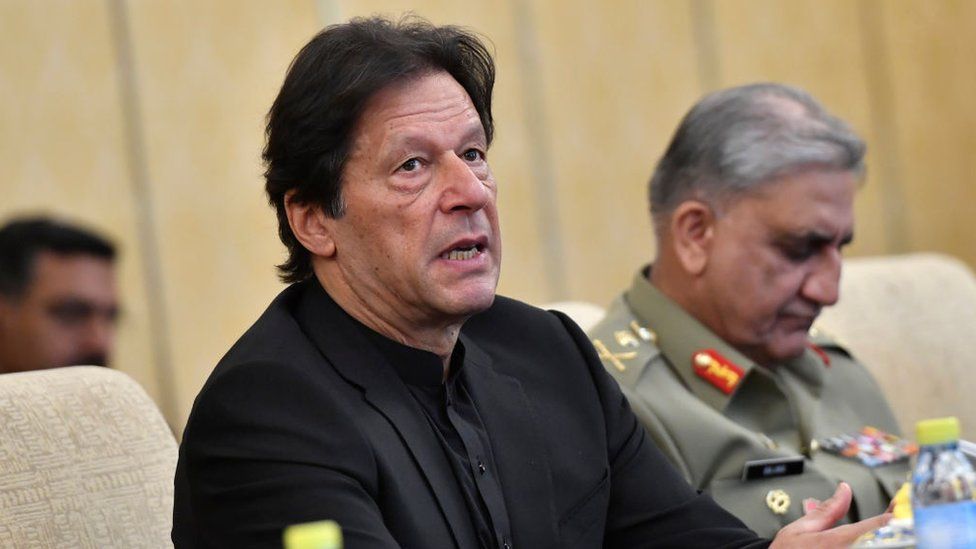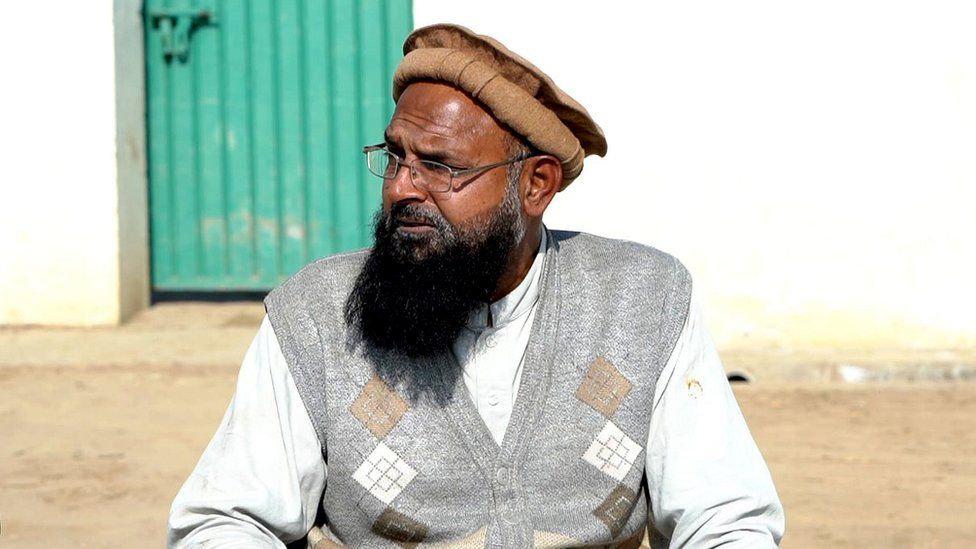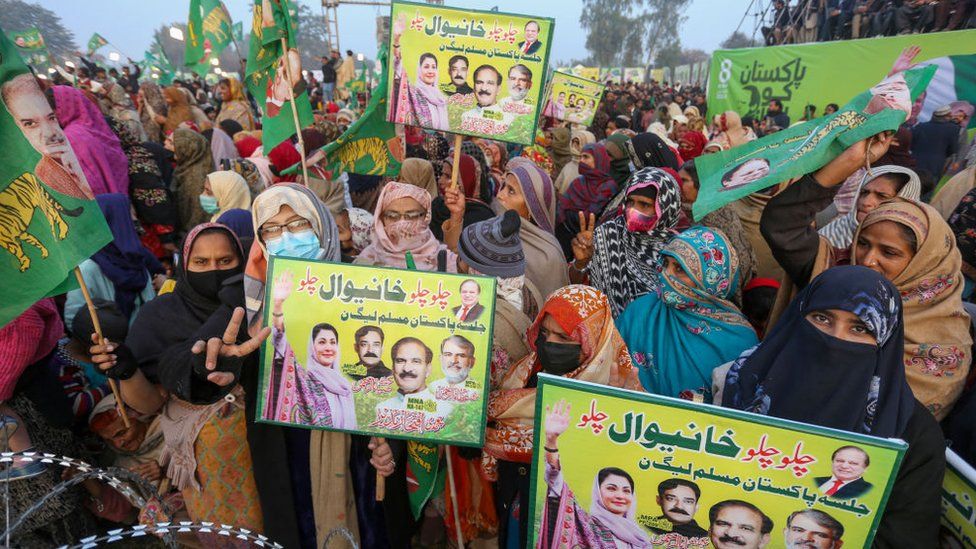
IMAGE SOURCE,GETTY IMAGES
Imran Khan’s Incarceration Fuels Political Rifts in Pakistan Ahead of Election.
The imprisonment of former Pakistan Prime Minister Imran Khan has become a catalyst for deepening political divisions within the country, creating rifts among families and friends as loyalties are tested ahead of the upcoming election on February 8.
In the Zeshaan household, a strict rule against discussing politics was established after Imran Khan’s election in July 2018.
Nida Zeshaan, a self-proclaimed “diehard Khan supporter,” recalls the strain within her family when her father, disapproving of Khan due to perceived military ties, did not vote for him in 2018.
The rift persisted for months, emphasizing the polarizing impact of Imran Khan’s political journey.
Imran Khan, once regarded as the Pakistan army’s golden boy, rose to power with promises to combat corruption and revitalize the economy.
However, since his ousting in 2022 and subsequent criminal convictions, he has been barred from contesting the upcoming elections.
The 71-year-old alleges politically motivated persecution, claiming foreign conspiracy and military involvement in orchestrating a no-confidence vote against him.

Despite these controversies, Imran Khan remains a dominant figure in political discourse, captivating public attention and discussions leading up to the election.
Family dynamics reflect the wider societal split over perceptions of Khan’s legacy.
Nida Zeshaan, a homemaker from Lahore, emphasizes her attraction to Khan’s vision of an Islamic welfare state, advocating for equality.
However, her father’s skepticism, rooted in Khan’s early alignment with the military, highlights the enduring impact of his evolving political narrative.
Imran Khan’s rise to prominence was initially supported by Pakistan’s military establishment, but tensions arose during his tenure, leading to a dramatic falling out over key appointments.
The subsequent no-confidence vote, Khan alleges, was part of a foreign conspiracy involving the United States and the military.
This narrative has galvanized his supporters, who view him as a victim of political machinations.

IMAGE SOURCE,GETTY IMAGES
While Khan’s economic and anti-corruption pledges have faced criticism for unfulfilled promises, his popularity remains resilient.
A Gallup poll in December indicated a 57% approval rating, positioning him ahead of rival Nawaz Sharif.
Khan’s appeal is attributed to sparking political awareness, challenging dynastic politics, and advocating for change.
However, critics argue that Khan’s politics rely on populism and demagoguery.
Some observers claim that his confrontations with the military and divisive rhetoric contribute to political instability.
The military’s historical role as a decisive political force in Pakistan has influenced its interactions with elected leaders.
Allegations of military interference extend to retired officers who claim repercussions for not supporting the no-confidence vote against Khan.
Some allege suspension of pensions and benefits, while others faced threats. The military’s response to these allegations remains unclear.
As Imran Khan is barred from the election and his party faces setbacks, divisions in Pakistani society are expected to intensify.
With Nawaz Sharif emerging as a leading candidate, concerns about military interference and suppression of dissent underscore the challenges facing Pakistan’s democratic landscape.
In Lahore and beyond, discussions on politics have become heated, reflecting a nation grappling with its political future.



